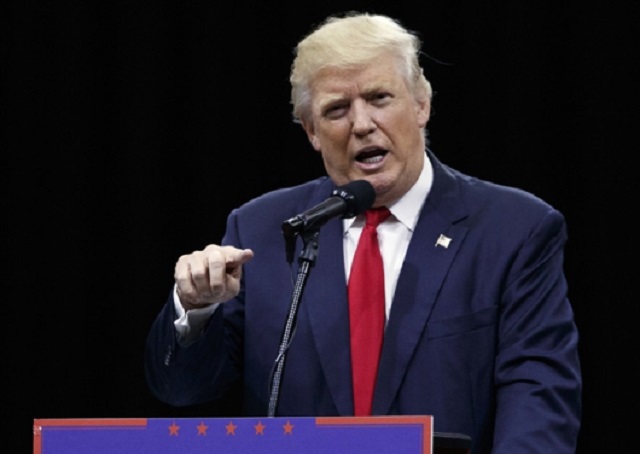Life in an imitation global village

Stephen Mpofu
Is there, in reality, such a thing as a global village?
Communicologists will give the above question a yes response and will as swift as lightning provide an elaboration to their answer.
Which is that a mere touch of a button will instantaneously link Zimbabweans, for instance, with other people in the farthest corner of the world in a state of inter-subjectivity on any happening in either location, thanks to advances in communication technologies by means of which the globe has been reduced to a mere village as it were.
But that is only a rhetorical village because, in practical terms, the ideal human habitation where life and services are shared in common remains an ever-receding mirage if not altogether a fanciful wish.
If on the other hand the so-called global village were indeed a tangible reality, its residents would be sharing a common humanity or ubuntu/hunhu.
In the present circumstances, however, that common feature of a global-village remains a far cry, to say the least. If that were not so various regions of the globe would have been outskirts of a true, people’s habitation or village.
But as things stand today greed daily begets protectionism by people in different regional locations of the globe resulting in an insularity or even rabid hostilities that breed violence.
Nearer home, for instance, xenophobic violence by South Africans protecting their turf against foreigners “taking over our jobs” have in recent years put South Africa in an uncharitable spotlight in the same away as there have been anti-alien sentiments also expressed by natives of other African states who remain too close with their national wealth or what they believe to constitute wealth.
This pen strongly believes that African countries that boast skilled personnel should share the experts with other African states short of such skilled personnel in order to equalise advancement on the continent and in the spirit of globalising human advancement.
But sadly the more developed nations of the world happen to be the ones that remain a barrier to a common advancement of the human race in a so-called global village that some nations parrot almost on a daily basis.
They do this by, for instance, tightening their border controls against residents from poorer parts of the global village.
If for instance, Britain’s move to exit the European Union of which it has been a member for years is not impelled by a desire to reduce, if not altogether end immigration by people from poorer European nations, then what is the true motive behind Brexit?
Restrictions and other challenges being experienced in Europe by African immigrants fleeing violence and poverty at home, further go to show that the world remains a vast geography with bold barriers dividing different nations of the rhetorical global village and with racism popping up its ugly head here and there.
But perhaps the decision by America’s Donald Trump to expel 800 000 young immigrants is not only bizarre; it eloquently demonstrates that global village is merely a verbal nicety camouflaging the isolationist ideologies of the so-called more civilised and advanced societies.
The affected persons were brought to the United States by their parents or other relatives as young undocumented immigrants whom the previous Obama administration amnestied in 2012, meaning that they could study, work and live in America permanently.
In putting the future of those affected on the line on Tuesday, President Trump claimed the Obama amnesty was unconstitutional. But, just as in the case when after assuming office, Trump decided to scrap the Obama health care insurance scheme, or Obamacare covering over 22 million ordinary Americans, Trump’s announcement provoked an avalanche of protests against the move by business leaders, unions, religious groups, opposition Democrats and many within Trump’s own Republican party.
In addition, immigration lawyers joined the chorus against the phased end of protection for those immigrants who arrived in the United States under the age of 16.
The authorities argued that contrary to claims that these immigrants took away jobs from Americans, they were, in fact benefactors who created employment for Americans and, as such, the immigrants contributed to both the growth of the American economy and to that country’s super-power status in the world.
One Mexican immigrant said in an interview with the Voice of America radio that he was young when brought to the US by his parents and did not know much about his native country.
He had integrated well into the American society and worked hard at school to become a teacher and holder of a PhD degree but did not know now what his fate would be like should Congress endorse Trump’s decision to expel immigrants.
But is America not a nation of immigrants? Yes it indeed is with the nucleus of that nation being Europeans who, on landing from ships that took them across the Atlantic ocean pounced on native Americans, or the so-called Red Indians, driving them away from their homes on lush plains and into forests and other, nondescript locations. The Indians have remained zoo-ed in those so-called reservations similar to African reserves to which people in Zimbabwe were, for instance, forced to live by British colonialists who invaded our country.
Tourists must obtain permits to visit the reservations where the Indians barely eke out their existence, as this scribe observed during a tour of the USA years ago.
Perhaps President Trump might wish to tell the young immigrants now at his mercy and the world at large about who are better American immigrants between those foreigners who settled in that country first and who obviously include Trump’s own ancestors and the new immigrants over whose stay in that country an axe now hangs.
President Trump and other Americans, especially Christians, must realise that God will be appalled if after the Obama amnesty no one stands before Him in the gap for the immigrants now under threat of expulsion from what for them has naturally become home away from their original birth places.
In such circumstances, is the Trump administration, for instance, prepared to risk God’s just wrath over any such failure to give the affected immigrants a fresh and permanent lease of life in America?
Curiosa and curiosa — that is what life can be like in the imitation global village we inhabit.












Comments